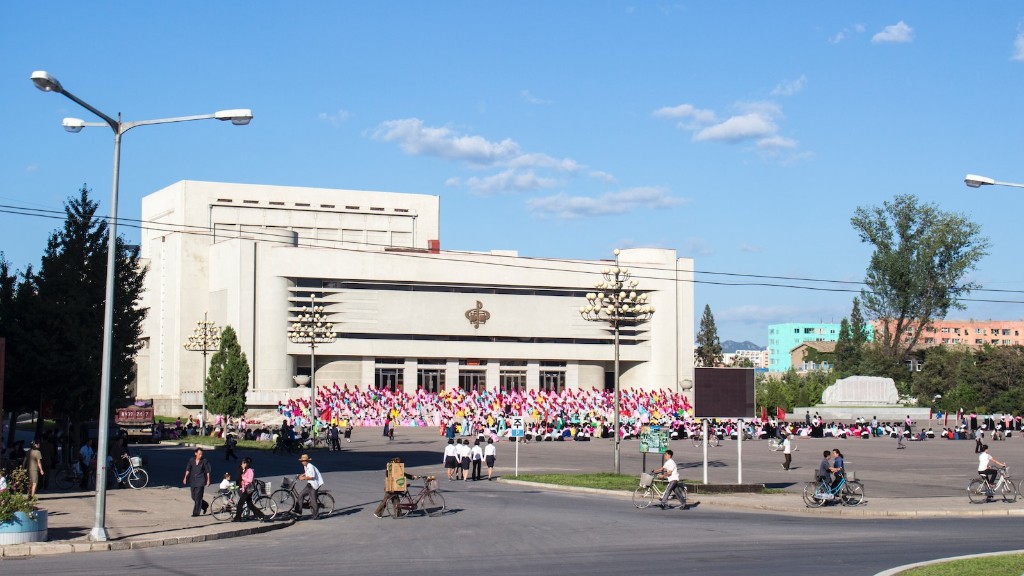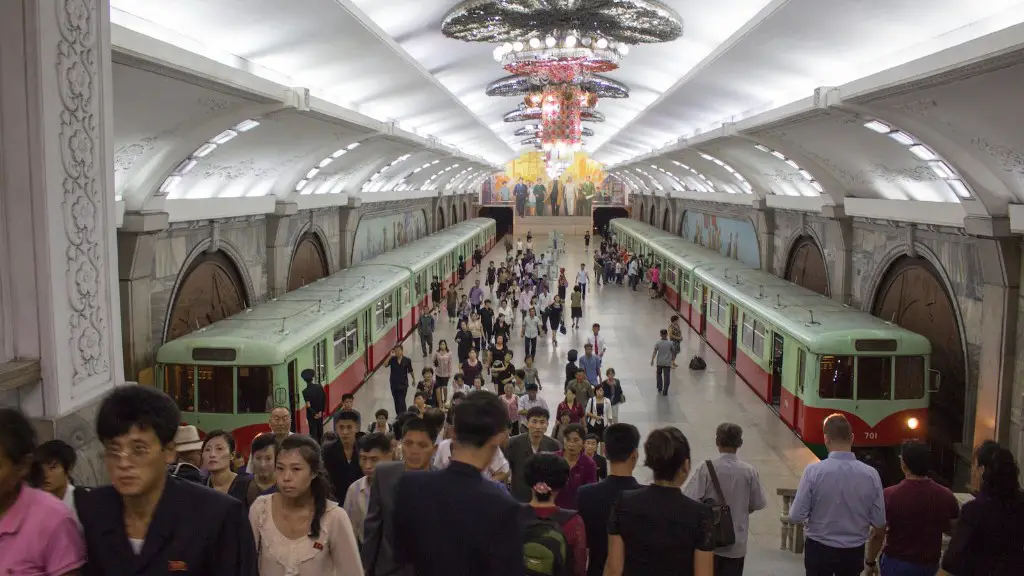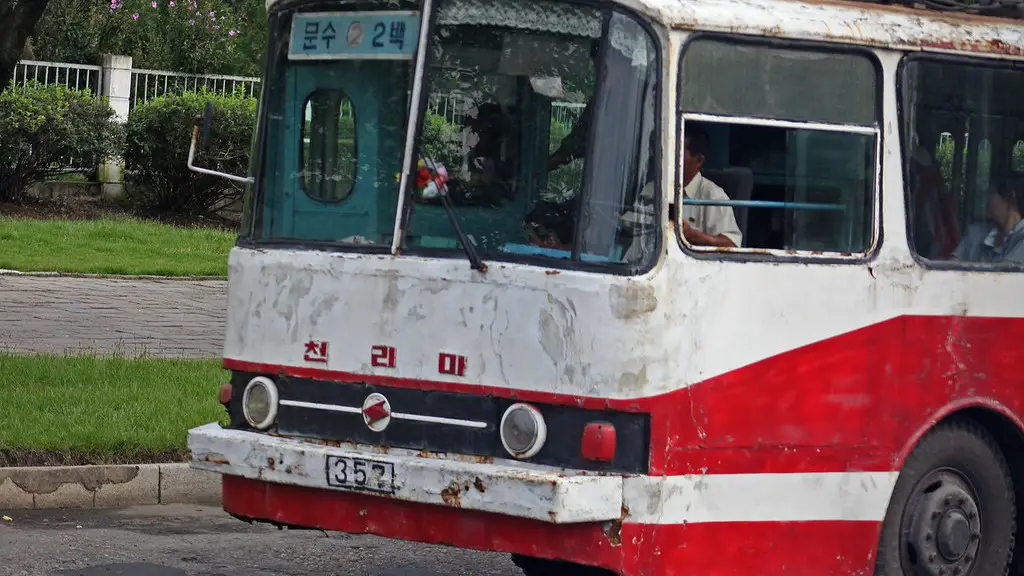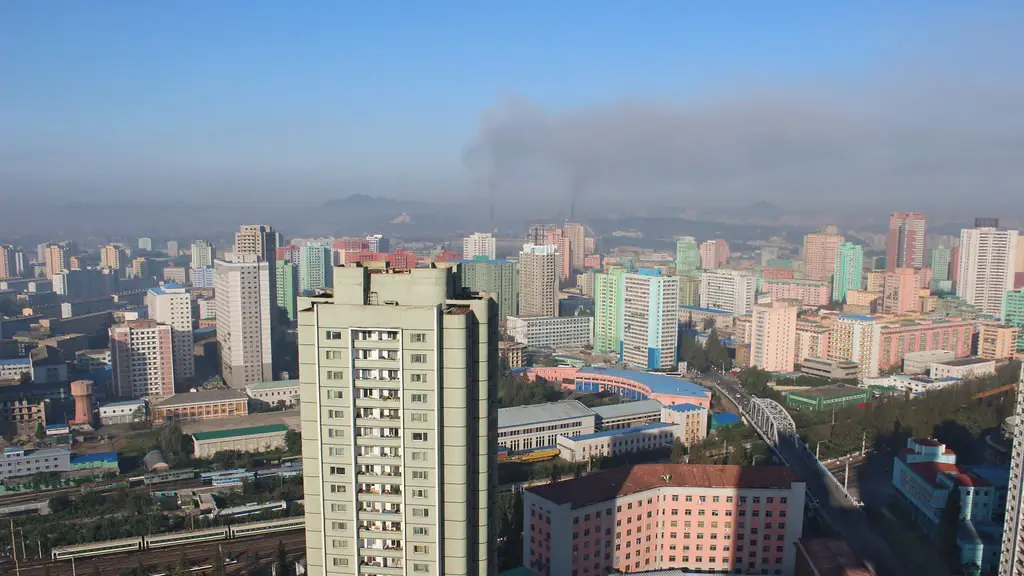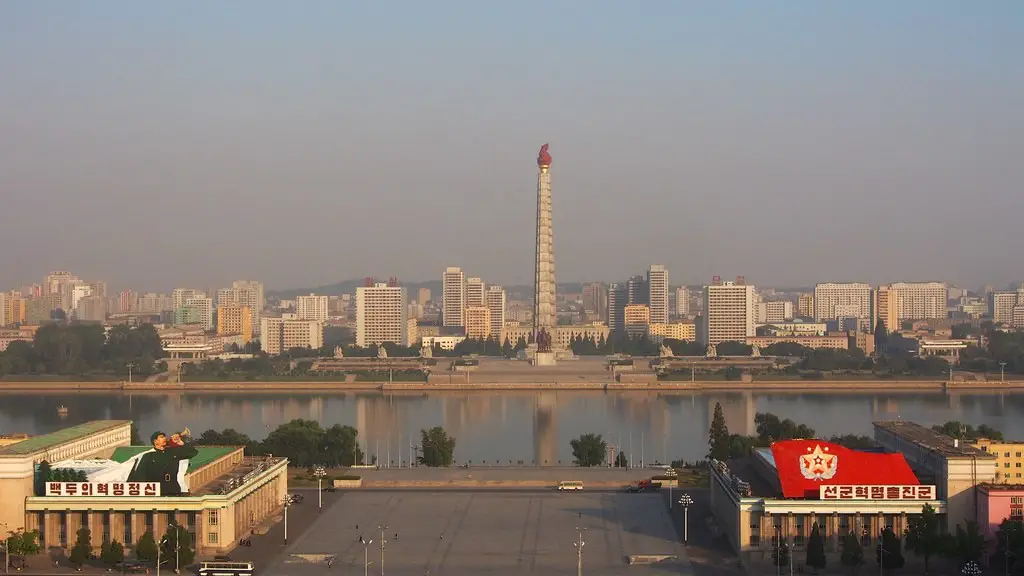Kim Jong-un is the Supreme Leader of North Korea and a ruthless dictator who has recently become even more radical and oppressive. Since coming to power in April 2011, Kim Jong-un has led the isolated nation down a dangerous path of nuclear intimidation. He has conducted a series of nuclear and ballistic missile tests, executed key political rivals, and violated all international obligations with respect to human rights. Although North Korea officially practices a brand of socialism, the nation is as rooted in authoritarianism as ever before and Kim Jong-un has maintained an iron grip on power.
The human rights abuses imposed by Kim Jong-un’s totalitarian regime are notorious. Political dissidents are regularly detained in prisons and labor camps for indeterminate amounts of time. Freedom of expression is all but non-existent and severe punishments are handed down for minor offenses. Access to the internet and foreign media is heavily restricted and officially, there is no freedom of religion. The situation has been further compounded by malnourishment, limited healthcare access and the implementation of military-style public education programs.
Kim Jong-un’s goal to achieve nuclear capabilities has been met with international condemnation. While the United Nations has issued a number of resolutions to try and limit North Korea’s nuclear activity, Kim Jong-un has shown little or no interest in complying. Diplomatic relations are at an all-time low, and military intervention is hovering ominously in the background. Former US President Trump famously launched a barrage of threats and insults towards Kim Jong-un, while radiation levels in North Korea has raised concerns over the risks of nuclear contamination.
The international community has had to find creative ways to work around Kim Jong-un and his far-reaching powers. Sanctions have been imposed and diplomatic talks have been conducted, with the ultimate aim of decreasing tensions and promoting a degree of stability between North Korea and its neighbours. In recent months, South Korean President Moon Jae-in has made some progress in inter-Korean relations, holding a number of summits in an attempt to reduce military threats and nuclear tensions.
It is clear that there is something inherently wrong with Kim Jong-un and the way he governs his nation. He has assumed an autocratic role and demonstrated a tendency to flaunt international law. Despite the region’s current level of nuclear deterrence and diplomatic tensions, there may still be a potential route to negotiation and peace. But until Kim Jong-un truly embraces a more moderate and democratic system of governance, the stability of North Korea will remain in doubt.
Kim’s Severe Oppression of Human Rights
Kim Jong-un’s oppressive regime has proven to be one of the most severe on record, impacting the lives of millions of North Koreans. He has ruled the nation with a ruthless and oppressive hand, repressing any form of opposition or dissent with an iron fist. Freedom of expression is non-existent, dissenters are harshly dealt with, and the internet and foreign media are heavily restricted. Political prisoners are held in indefinite detention and labor camps, and access to information is severely limited. On top of this, the nation is facing terminal economic decline due to the imposition of international sanctions.
The human rights situation in North Korea is dire. In 2018, a United Nations Commission of Inquiry detailed widespread, organized and systematic human rights violations including executions, persecution of religious groups, and systematic torture in detention centers. The UN has further identified a number of harsh and inhumane prison camps, where inmates are subjected to physical and psychological torture, starvation, and forced labor.
Kim Jong-un has also overseen a sweeping purge of those closest to him, especially those who have been seen as a potential threat. Jang Song-thaek, his own uncle, was arrested in 2013 and publicly executed in 2014. His purge also extended to other military and political figures, including the Minister of Defense, Kim Kyok-Sik in 2015 and Hwang Pyong-so, a top member of the military in 2016. With such a oppressive and punitive approach, it is no wonder that Kim Jong-un is one of the most reviled and feared leaders on the planet.
The Global Community’s Response to Kim Jong-un
In the face of Kim Jong-un’s oppressive rule, the global community has taken a strong stance as a deterrent. The United Nations Security Council has imposed an array of sanctions on North Korea in a bid to put pressure on the regime and limit its nuclear program. As a result, North Korea has become significantly isolated from most of the international community, with key economic and diplomatic links broken.
Although there have been attempts to negotiate with Kim Jong-un, not much has been achieved. The Trump-Kim summit in 2018 failed to produce any concrete results, and other diplomatic efforts have been unsuccessful. The nuclear issue remains at the center of global attention, and the risk of military confrontation is ever-present and growing.
At the same time, even in the face of immense international condemnation, Kim Jong-un appears utterly unmovable. He is determined to preserve his regime and his vision of a self-reliant socialist state, and is willing to put North Korea’s inhabitants through the most brutal of measures to do it. Without substantial changes to his rule, it will be difficult to achieve lasting solutions in North Korea.
Will North Korea Ever Change?
Kim Jong-un’s rule of North Korea has cast a dark cloud over the region, and the continued suffering of the North Korean people is heartbreaking. As a result, the international community has sought to use a number of tools to try and bring about change. Despite the UN Security Council’s stern warnings, sanctions, and a series of talks, there is still little sign of any real progress. Kim Jong-un’s stubborn reluctance to make any real concessions has left the situation at a stale-mate.
In 2018, relations between the United States and North Korea had perhaps reached their lowest point during the reign of Kim Jong-un. But in recent months, the relationship has somewhat stabilized with talks being held between the leaders of both states. While these talks have been limited in scope and have yet to produce any concrete results, they are still seen as a sign of hope for many. Whether or not Kim Jong-un is willing to see the potential of diplomacy is another question.
It is likely that the current political situation will remain a stalemate for some time to come. This means that the essential question of whether North Korea can change remains. Kim Jong-un’s rule is one characterized by misery, authoritarianism, and a complete disregard for human rights. Yet, despite the dire situation in North Korea, there may still be a chance for the region to emerge from the shadow of tyranny and move towards a future of freedom and prosperity.
The Impact of North Korea’s Nuclear Ambitions
Kim Jong-un has been determined in his pursuit of nuclear capabilities, and the international community has responded with deep concern. North Korea has conducted a number of nuclear tests, the latest of which was a huge explosion in September 2017, resulting in a 5.3 magnitude earthquake. As such, there has been a greater awareness of the destructive potential of even a small-scale nuclear detonation.
The United Nations has condemned North Korea’s nuclear program, imposing multiple economic and diplomatic sanctions on the regime. The threat posed by North Korea’s nuclear ambitions is more than just a regional concern; it is a global one. The possibility of a nuclear conflict and the devasting consequences of such a conflict have been met with worrisome tremors.
Not only that, but the radiation levels in North Korea have raised further concerns over the safety of the populace and the environment. As of the latest measurements, radiation levels in the region are far higher than those considered safe by the United Nations and other international agencies. As a result, any further nuclear tests could have catastrophic consequences.
The Possibility of Peace and Stability
Unfortunately, Kim Jong-un remains as intractable as ever and the region is locked in an unwinnable stalemate. As the situation in North Korea continues to deteriorate, there is a need for the international community to come together and find a viable solution. Despite the current level of diplomatic tensions, there still may be potential routes to peace, including through negotiations and the tempering of military threats.
South Korean President Moon Jae-in has taken a proactive stance in attempting to reduce military threats and nuclear tensions, holding a number of summits with Kim Jong-un. As a result, North and South Korea have taken steps to reduce tensions and promote stability, as evidenced by the demolition of a key military site in October 2018.
Overall, there is still a chance for lasting peace in the region. But for that to happen, Kim Jong-un must recognise the need for a more open and democratic system of governance. The current state of affairs in North Korea is a dire one, and there will be no real progress until Kim Jong-un is willing to make significant changes.
